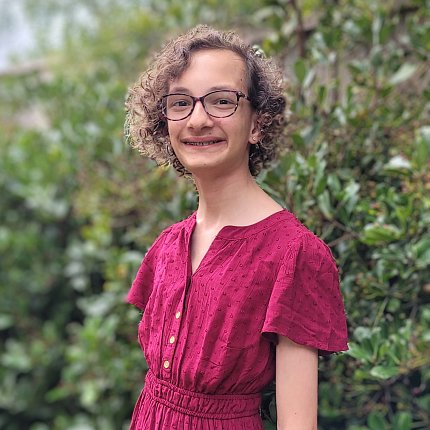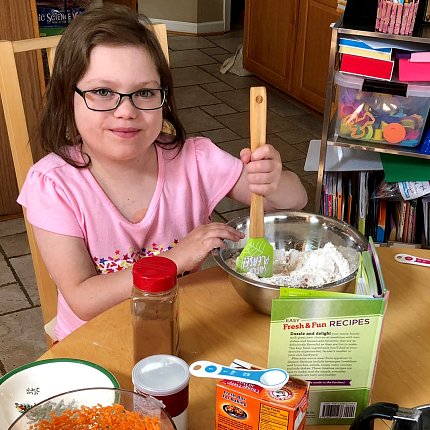Learning from Every Young Person with Cancer
Childhood cancers are collectively rare, making up about 1-3% of annual cancer diagnoses in the country. Research progress has been slowed, in part because information on diagnosis, treatment and outcomes is often stored where a child, adolescent or young adult (AYA) is treated, making it difficult for researchers and clinicians to find and learn from this data.
The National Cancer Institute’s (NCI’s) Childhood Cancer Data Initiative (CCDI) aims to change that by meeting the need to connect and share this critical data more broadly. CCDI’s work could make it easier for researchers to find patterns and accelerate discoveries to improve treatment, quality of life and survivorship of all children and AYAs with cancer.
Why Data-Sharing is Important

Like many middle schoolers, Thalia loves being with friends and pursuing her hobbies, but it’s taken a lot to get here. Thalia was diagnosed with neuroblastoma at 15 months old and endured immunotherapy, chemotherapy, radiation and multiple surgeries—relapsing twice—before no longer having evidence of disease.
Now, Thalia’s family hopes her experiences will help others with childhood cancer.
“If there is anything that comes from Thalia’s story, any data from her treatment and care, anything to make the process easier or more effective for future patients, that would be the ideal outcome,” said her parents, Kate and Jeff.
Another patient, Abby, was diagnosed with a rare form of acute lymphocytic leukemia at age 4. Shared data revealed the most promising treatments for Abby, helping to extend her life beyond her initial prognosis.
Despite harsh treatments and complications, Abby loved life and nurtured a passion for cooking, which she shared through a cooking show that raised awareness for pediatric cancer research. Abby passed away when she was 15, but her legacy lives on in her story, work and medical data.
“Data sharing accelerates learning,” said Patty, Abby’s mom. “Victories are replicated; failures are not repeated. It helps more people, decreases suffering and saves lives.”
Uniting the Community
In collaboration with families like Thalia’s, Abby’s and others across the childhood cancer community, NCI’s CCDI is building a data infrastructure with tools and platforms for finding, accessing and analyzing childhood cancer data from NCI and other institutions.

“The power of childhood cancer data speaks for itself,” said CCDI Scientific Director Dr. Gregory Reaman. “Being able to aggregate, share and broadly use these data outside of individual projects has enormous opportunities.”
CCDI is helping children and AYAs in other ways, too. The CCDI Molecular Characterization Initiative is expanding access to state-of-the-art molecular testing by providing it at no cost to children and AYAs with certain types of cancer. Results from these tests can help inform the best treatment options. Another CCDI program, the Coordinated Pediatric and Young Adult Rare Cancer Initiative, aims to advance understanding and treatment of very rare childhood cancers.
Ultimately, behind all CCDI’s data and programs are young people. Their stories and voices drive this work and remind us why sharing data to power collective discovery is so important.
For more information about CCDI, visit cancer.gov/CCDI.
